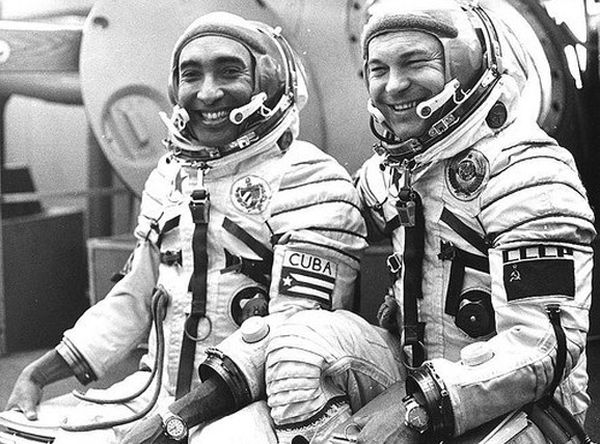
Cuba today celebrates the 40th anniversary of Arnaldo Tamayo’s space flight, who then became the first cosmonaut of Latin America to achieve that feat thanks to the collaboration with then Soviet Union.
The current Brigadier General of the Revolutionary Armed Forces of Cuba, departed to outer space aboard the Soyuz-38 spacecraft from the Baikonur cosmodrome, on September 18, 1980, together with Soviet cosmonaut Yuri V. Romanenko, head of the mission.
From Cuba, people followed the extraordinary event through television screens.
Almost a day later, the spacecraft docked at the Saliut 6 orbital station where cosmonauts Leonid Popov and Valeri Riumin were already there.
During a week the crew carried out 27 projects prepared by scientists from Cuba and the Union of Soviet Socialist Republics (USSR) and others started by experts from Bulgaria and Hungary continued.
After 128 circumterrestrial orbits, on September 26, Tamayo and Romanenko returned to Earth. Days later, Tamayo received the distinction of Hero of the Soviet Union and Hero of the Republic of Cuba.
In statements to Granma newspaper, Cuban scientist José Altschuler acknowledged that almost all of the medical-biological, physical and technical work carried out during the flight left significant results.
The then president of the National Commission of the Intercosmos Program, together with the Soviet Union, highlighted that some of the research had practical applications in the short term, such as the one destined to study the island’s natural resources.
The expert pointed out that ‘to the pride of Cubans, national science dressed up in the preparation and subsequent fulfillment of the objectives set in the memorable mission.’
Created in 1967, among the countries of the socialist bloc, the Intercosmos Program promoted research, with scientific and technical experiments.
Five years ago, the Cuban cosmonaut told Granma newspaper: ‘In my dreams I make that flight all the time, it’s like reliving that opportunity.’
In 2017, the first Latin American to see the Earth from space won the Medal of the United Nations Educational, Scientific and Cultural Organization (UNESCO) on Space Science.
For Cuba, the order was a recognition to its contribution in the field of Science and to global efforts in order to place it at the service of development.
Deputy of the National Assembly of People’s Power since 2018 (Cuban Parliament), at 78, Tamayo is also head of the Department of Foreign Relations of the Ministry of the Revolutionary Armed Forces of Cuba.
 Escambray ENGLISH EDITION
Escambray ENGLISH EDITION





Escambray reserves the right to publish comments.